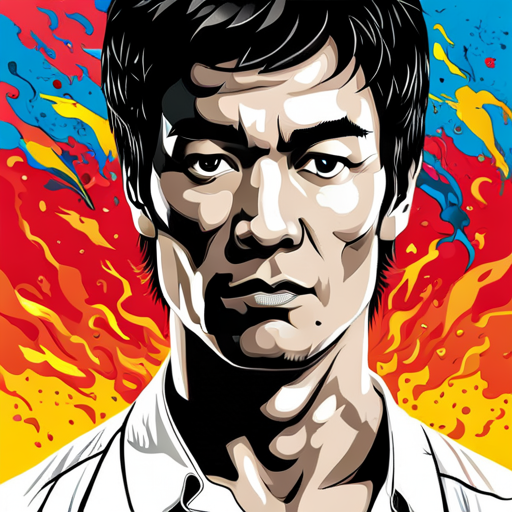Autobiography of Bruce Lee
Early Years
I was born as Lee Jun-fan on November 27, 1940, in Chinatown, San Francisco, to my parents Lee Hoi-chuen and Grace Ho. In a twist of fate that might have preordained my future, my birthplace was the hour and year of the Dragon, according to Chinese zodiac. Our family returned to our native Hong Kong when I was still a baby, and that’s where I spent my early years. I was one of five children, and the son of a Cantonese opera star. My father introduced me to the film industry at a very young age, a move that would shape my future.
My interest in martial arts began in earnest when I was 13 years old. After experiencing street fights and bullying, I felt the need to protect myself and channel my energy in a positive way. I began studying Wing Chun under master Yip Man. Little did I know how influential this decision would be, guiding me towards a life of discipline, self-improvement, and the development of my own martial art philosophy.
Move to America
In 1959, concerned about my involvement in street fights and hoping to secure a better future for me, my parents decided to send me back to the United States. I arrived in San Francisco, then moved to Seattle, where I enrolled in Edison Technical School and completed my high school education. I later attended the University of Washington, studying drama and philosophy, subjects which later influenced my acting career and martial art philosophy.
During this time, I began teaching martial arts, which would evolve into the style known as Jeet Kune Do. I was passionate about breaking down traditional boundaries and creating a martial art that was truly effective and adaptive.
Hollywood and the Big Screen
My break into Hollywood started with the role of Kato in “The Green Hornet” television series in 1966. Although the series was short-lived, it opened doors for me in the film industry. I saw Hollywood as an opportunity to introduce Chinese culture and martial arts to the West.
Despite my efforts, Hollywood proved resistant to the idea of an Asian leading man. Frustrated, I returned to Hong Kong and signed a two-film contract with Golden Harvest, a major film production company. “Fists of Fury” and “The Chinese Connection” were huge successes. Suddenly, I was a superstar in Hong Kong.
My success in Hong Kong caught Hollywood’s attention. In 1972, I starred in “Enter the Dragon,” the first film co-produced by Hollywood and a Hong Kong studio. The film was a worldwide hit, and it established me as a global icon. However, I did not live to see its success.
Philosophy and Legacy
Beyond my film and martial arts careers, I was deeply interested in philosophy. Many don’t know that I was an avid reader and I drew wisdom from both Eastern and Western philosophies. These philosophies shaped my worldview, my approach to martial arts, and the way I led my life. I believed in the fluidity of being like water, adapting to circumstances, and constantly learning and growing.
My life was cut tragically short on July 20, 1973. I was only 32. The world lost a burgeoning film star and a martial arts revolutionary. But my legacy lives on. My philosophies continue to inspire countless people around the world, and I am proud to have played a role in popularizing martial arts and breaking down racial barriers in Hollywood.
Looking back, my journey has been one of grit, determination, and the pursuit of self-expression. Whether on the big screen, in a dojo, or in the philosophy I espoused, my life has always
been about honestly expressing myself. I am Bruce Lee, a martial artist, an actor, a philosopher, and a relentless pursuer of self-knowledge. I leave you with my words: “The key to immortality is first living a life worth remembering.” I hope that in some way, I have achieved this.
Show more +
